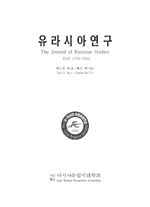- 영문명
- An Study of Discriminant Analysis on ERP System Performance
- 발행기관
- 아시아.유럽미래학회
- 저자명
- 한동협(Dong-Hyup Han)
- 간행물 정보
- 『유라시아연구』제6권 제4호, 91~108쪽, 전체 18쪽
- 주제분류
- 사회과학 > 사회과학일반
- 파일형태
- 발행일자
- 2009.12.30
4,960원
구매일시로부터 72시간 이내에 다운로드 가능합니다.
이 학술논문 정보는 (주)교보문고와 각 발행기관 사이에 저작물 이용 계약이 체결된 것으로, 교보문고를 통해 제공되고 있습니다.

국문 초록
통합적인 정보기술을 기반으로 한 전사적인 자원관리인 ERP의 중요성이 강조되고 있다.
ERP시스템은 기업내 생산, 판매, 자재, 인사, 회계 등 통합, 관리하는 통합정보시스템을 말하는데 정보기술을 활용한 제품주문에서 판매까지의 관리와 회계, 재무, 인사관리를 포함한 기업업무를 지원하는 시스템이라 할 수 있다. 따라서 효과적인 ERP시스템을 구축하기 위해서는 ERP시스템구축의 성공요인을 지속적으로 파악하고 변수들과의 관계를 정형화할 필요성이 제기된다.
ERP시스템은 다음과 같은 특징을 가진다고 볼 수 있다. 첫째, 모든 정보를 공유함으로써 각종 경영판단을 적절히 할 수 있다. 둘째, 각종 경영판단이나 의사결정이 신속해 짐으로써 정보를 기반으로 한 각종 시뮬레이션이나 계획적 경영활동이 가능하다. 셋째, 글로벌한 프로세스 모델을 적용하기가 쉽고, 기업의 리엔지니어링을 유연하게 할 수 있다는 것이다.
ERP시스템 구축 성공요인과 성과요인의 선행연구로는 다음과 같다.
여인수(2002)는 경영자지원을 중요한 성공요인으로 제시하고 있고, 김병곤과 오재인(2002)은 성공요인으로 정보기술의 경험을 제시하였으며, 송신근(2003)은 정보시스템의 정교성 등 효율적인 정보시스템을 제시하였으며, 이석준(2001)은 패키지의 적절성을 제시하였다.
ERP시스템의 성과 요인으로 신성식(2004)은 업무효율성의 증가 등 생산성을 제시하였고, 성백춘(2006)은 정보의 활용 등 조직활성화를 제시하였으며, 김갑태(2004)는 사용자의 만족도 등을 제시하였다.
따라서 본 연구에서는 기존의 선행연구에 기초하여 ERP성공 요인 변수와 ERP성과 변수를 선정하여 판별분석을 통한 변수들 간의 관계를 제시하고자 하였다.
ERP성공 요인 변수로 채택된 경영자지원, 기반시스템, 패키지적절성, 효율적인 시스템 변수들이 ERP성과 변수로 채택된 생산성 집단분류. 조직활성화 집단분류, 만족집단분류에 어떠한 영향을 미치는지에 대하여 실증적인 분석을 하였다.
분석결과 모든 변수들은 유의성 있는 변수로 나타났다. 즉, 종속변수 생산성에 영향을 많이 미치는 변수는 효율적인 시스템 변수이고, 조직활성화 변수에 영향을 많이 미치는 변수는 경영자지원 변수이며, 만족변수에 영향을 많이 미치는 변수는 경영자지원변수로 나타났다.
이러한 분석결과는 ERP성과를 높이기 위해서는 최고 경영자의 지원이 절대적이라는 것을 의미한다. 따라서 많은 기업들이 ERP시스템을 성공적으로 구축하는데 하나의 업무지침을 제시해 줄 것으로 판단된다. 또한 ERP시스템 구축 성공요인과 성과요인을 파악함으써 ERP시스템 추진 과정에서 발생할 수 있는 불필요한 비용과 시간을 절약할 수도 있을 것이다. 또한 다음과 같은 한계점도 가지고 있다. 즉 ERP과 관련된 다른 추가변수가 있을 경우 다른 연구 결과가 도출될 수도 있다는 점이다.
영문 초록
The importance of ERP System is emphasized recently, because ERP System become the important way for organization to enhance our competitiveness and ERP System enables an organization to utilize management resources.
This importance of ERP System makes an enterprise to introduce ERP System. But introduction of an ERP System is expected to increase the performance of an enterprise as well as the problem of an enterprise. Therefore we need to analyse how implementation factors effect performance.
The purpose of this study is to identify the relation between the success implementation factors and performance on ERP Systems.
According to prior literature, CEO supports, the effective system implementation, environment of IT and S/W adoption are related to the success factors. And the productive improvement, the effective organization and satisfaction are related to the performance.
On the basis of prior literature, I develop a model that the success implementation factors affect the performance variables.
The success implementation factors are CEO supports, the effective system implementation, environment of IT, S/W adoption.
The performance variables are the productive improvement, the effective organization and satisfaction.
Therefore, I set three hypothesis.
First hypothesis is that CEO supports, the effective system implementation, environment of IT and S/W adoption are related to the productive improvement.
Second hypothesis is that CEO supports, the effective system implementation, environment of IT and S/W adoption are related to the effective organization.
Third hypothesis is that CEO supports, the effective system implementation, environment of IT and S/W adoption are related to the satisfaction.
In order to test three hypothesis, This kind of steps was as following.
The data for the empirical analysis were collected from 225 korean companies that used ERP System and the success factors and performance variables were chosen in form of questionnaire.
With these data, the discriminant tool was used as the statistical analysis.
The results of this study are that the success factors(CEO supports, the effective system implementation, environment of IT and S/W adoption) are significantly related to performance factors(the productive improvement, the effective organization and satisfaction),
Particularly the effective system implementation had strongest relation on the productive improvement, and CEO support had strongest relation on the effective organization and satisfaction.
This study show that CEO support is most important factor in terms of influential performance factors.
This result will contributes to implement ERP System in practical fields.
목차
Ⅰ. 서 론
Ⅱ. 연구방법
Ⅲ. 연구설계
Ⅳ. 실증분석
Ⅴ. 결 론
참고문헌
키워드
해당간행물 수록 논문
- 조직몰입과 보상이 서비스 몰입과 품질에 미치는 영향에 관한 연구
- 关于韩国的企业城市建设及利用中华资本方案的研究: 以务安韩中国际产业园区事例为中心
- 녹색일자리 국제현황 비교와 한국 녹색뉴딜정책 분석에 관한 탐색적 연구
- 국민연금기금의 해외 투자를 위한 독일 증권거래의 행정규제와 위험관리에 관한 실증적 연구
- 인권과 민주주의에 대한 로크와 루소 사상의 비교 고찰과 북한 인권
- 판별분석을 이용한 ERP시스템의 성과에 관한 연구
- 서비스 조우만족에 영향을 주는 서비스 전달과정 요소에 관한 연구
- 부산 영상산업 성과분석과 육성방안
- 항공서비스의 불만요인이 전환의도와 전환행동에 미치는 영향연구
- 유가의 경제사상에 관한 연구
- Reflections on Human Salvation and Deification in Russian Orthodox Culture and Dostoevsky's Religiosity: Centering on The Brothers Karamazov
- 무애차(無碍茶)의 현대적 행다법
- 미국 서브프라임 금융위기에 따른 EU 대응방안 및 시사점
- 공급함수를 이용한 수출보험의 경제적 효과 분석
- 고속 모바일 네트워크 환경에서의 모바일 콘텐츠 발전방향에 관한 연구
참고문헌
관련논문
사회과학 > 사회과학일반분야 BEST
- AI와 디지털 문화 산업의 결합에서 저작권 및 윤리적 규범 준수의 필요성 연구
- 인공지능(AI)과 윤리
- 종합병원 간호사의 환자안전문화인식과 조직의사소통만족이 안전간호활동에 미치는 영향
사회과학 > 사회과학일반분야 NEW
- 일본의 노인 삶의 보람 취로 현황 및 과제: 삶의 보람 취로에서 삶의 보람 활동으로
- 잠재프로파일 분석을 활용한 저소득 청년이 인지하는 고용장벽의 유형화
- 중장년 약물중독 회복당사자의 외로움 영향요인 연구
최근 이용한 논문
교보eBook 첫 방문을 환영 합니다!

신규가입 혜택 지급이 완료 되었습니다.
바로 사용 가능한 교보e캐시 1,000원 (유효기간 7일)
지금 바로 교보eBook의 다양한 콘텐츠를 이용해 보세요!



